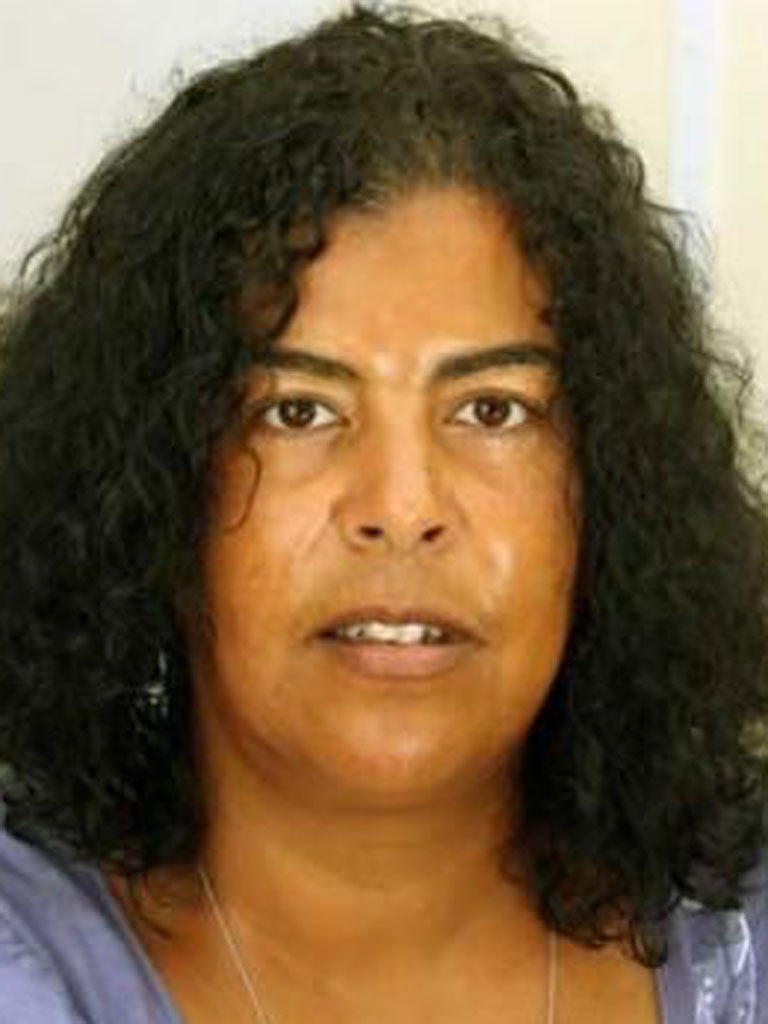Susan Alexander: Met's secrecy over shooting that killed my son is an insult
Victim's mother has waited seven years for an inquiry into her son Azelle's death. Nina Lakhani meets her

Your support helps us to tell the story
From reproductive rights to climate change to Big Tech, The Independent is on the ground when the story is developing. Whether it's investigating the financials of Elon Musk's pro-Trump PAC or producing our latest documentary, 'The A Word', which shines a light on the American women fighting for reproductive rights, we know how important it is to parse out the facts from the messaging.
At such a critical moment in US history, we need reporters on the ground. Your donation allows us to keep sending journalists to speak to both sides of the story.
The Independent is trusted by Americans across the entire political spectrum. And unlike many other quality news outlets, we choose not to lock Americans out of our reporting and analysis with paywalls. We believe quality journalism should be available to everyone, paid for by those who can afford it.
Your support makes all the difference.The mother of an unarmed man shot dead by police officers seven years ago has slammed the inquiry into his death for allowing what she sees as unnecessary secrecy and a failure to hold the Metropolitan Police to account.
The criticism comes as the Met moves to prevent disclosure of helicopter footage of its surveillance operation against Azelle Rodney, 25, who was shot six times at point-blank range in west London in April 2005.
Susan Alexander, his mother, told The Independent in an exclusive interview that she has lost some confidence in the public inquiry, which started five weeks ago after years of political and legal wrangling about sensitive police material.
Mrs Alexander said that the current fight to see the helicopter footage is just one example of how the Met has made repeated efforts to have multiple pieces of evidence redacted or excluded from the inquiry during its opening weeks: "They said it was going to be fully open and transparent, but after all of this time to have more redacted information put in front us, well I find it quite an insult."
"This is my only opportunity to find out what happened," she added. "I've been gagged for years and I've played my part by keeping quiet. Now it's time to stop the secret hearings and for everything to be heard publicly."
A police helicopter filmed Mr Rodney and two other men in a car for several hours as they were suspected of planning an armed drug heist. The family only became aware of the footage six weeks ago. The chairman of the public inquiry, Sir Christopher Holland, last year decided this footage, which captured the hours before the "hard stop" and fatal shooting of Mr Rodney, was not useful and did not inform the family of its existence.
However, he ruled on Tuesday that it should be seen by lawyers acting for Mr Rodney's family. This would allow them to make submissions to the inquiry about why the material should be part of the evidence.
The inquiry has heard that police officers on the ground were in communication with those in the air during the operation. The family's lawyers believe it is essential to explore whether Mr Rodney's vehicle could have been intercepted at an earlier point in a safer location, rather than outside a busy pub on a high street.
The barrister acting for the Met said they would challenge the ruling as such sensitive and secret police material should not be seen. The Met are expected to make an application to the High Court to judicially review Sir Christopher's decision by 1pm today.
Mrs Alexander's solicitor, Daniel Machover, said: "We are not satisfied that everything that has been withheld historically or currently has been legitimately withheld; it is important now for any unnecessary secrecy to stop."
The inquiry team declined to comment. A Met spokesman said it was trying to stop the family lawyers from seeing the evidence for "genuine operational reasons" because of "the sensitive nature of the material".